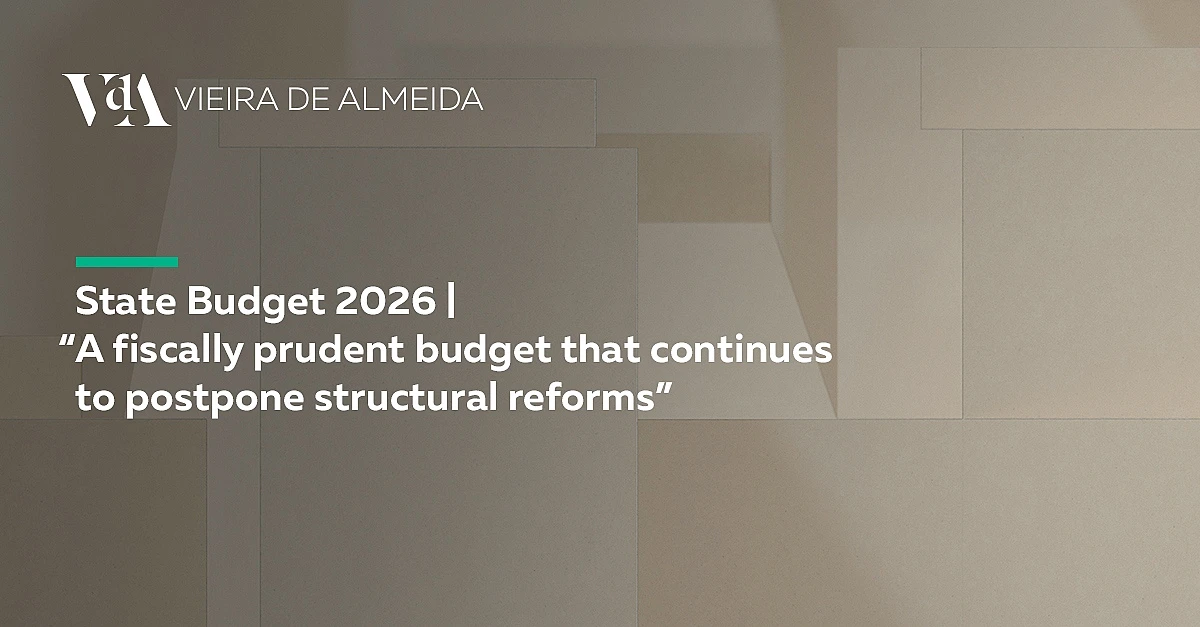Francisco Cabral Matos offers an analysis of the State Budget for 2026, emphasising that the document follows a line of continuity with the previous year, featuring “surgical tax changes with limited financial impact”. He highlighted the repeal of the Additional Solidarity Levy on the Banking Sector (ASSB) as one of the few measures with significant effect.
For the Partner responsible for the Tax practice at VdA, “the choice of a minimalist budget in tax matters seems to us a prudent and considered option”, recalling the technical and practical issues that have characterised previous tax reforms. He also valued the maintenance of tax incentives aimed at salary enhancement, namely the exemption from personal income tax and social security contributions on productivity bonuses and profit-sharing schemes, measures that “give substance to the goal of improving salary conditions and sharing positive results between shareholders and employees”.
On the other hand, he points out weaknesses in the document, stressing the lack of measures to address “various illegalities recognised by the Court of Justice of the European Union and by the national higher courts”, which, he notes, contribute to a “highly complex tax system still marked by a heavy tax burden, estimated at almost 34.7% of GDP”.
In addition, he highlights the existence of a “parallel tax budget”, with standalone fiscal measures that include the gradual reduction of the corporate income tax rate and the introduction of a VAT group regime. For 2026, Francisco Cabral Matos underlines the importance of broad public debate on the structural reforms planned — such as the new package of rental incentives, the revision of tax procedures, and the taxation of electricity generation centres — in order to “ensure legally sound, robust solutions that can endure over time”.
This article is available in the print edition of Revista Advocatus dated 11 November 2025.
